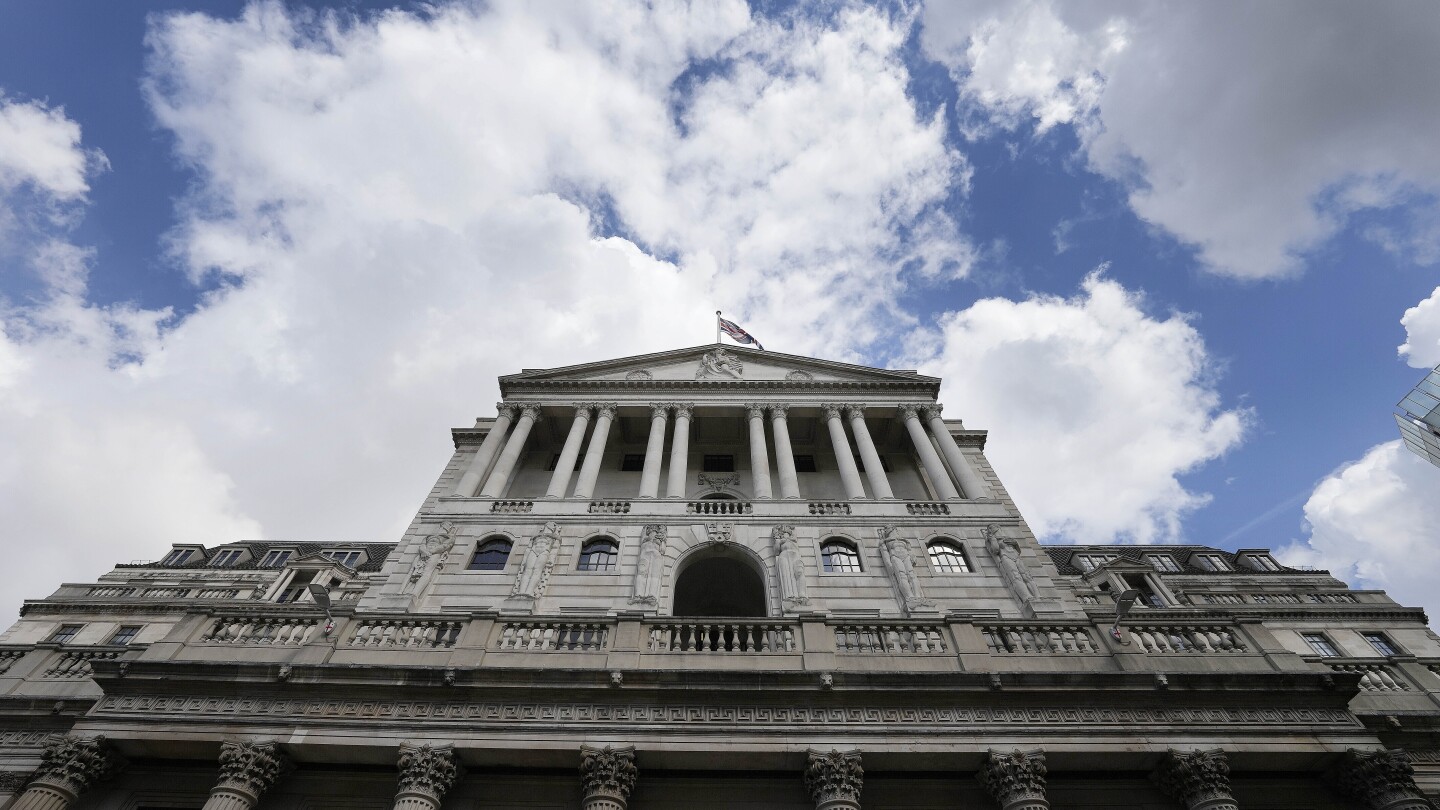LONDON (AP) — Inflation in the U.K. as measured by the consumer prices index eased back to its lowest level in more than two years, official figures showed Wednesday, in a development that is likely to bolster speculation that the Bank of England may start cutting interest rates sooner than expected.
The Office for National Statistics said inflation dropped to 3.9% in the year to November, its lowest level since September 2021, from 4.6% the previous month. That decline was bigger than anticipated in financial markets.
The agency said the biggest driver for the fall was a decrease in fuel prices after an increase at the same time last year. Food price inflation also contributed to the decline.
Last week, the Bank of England left its main interest rate at a 15-year high of 5.25%, where it has stood since August following the end of nearly two years of hikes. Bank Gov. Andrew Bailey said interest rate policy would likely have to remain “restrictive for an extended period of time.”
The Bank of England has managed to get inflation down from a four-decade high of over 11% but still has a way to go to get to its target of 2%.
Higher interest rates targeted a surge in inflation, first stoked by supply chain issues during the coronavirus pandemic and then Russia’s invasion of Ukraine, which pushed up food and energy costs.
While the interest rate increases have helped in the battle against inflation, the squeeze on consumer spending, primarily through higher mortgage rates, has weighed on growth in the British economy. There are growing worries that rates will stay high for too long, unnecessarily damaging the economy.
Samuel Tombs, chief U.K. economist at Pantheon Macroeconomics, said November’s surprisingly sharp fall in inflation “reinforces the likelihood” that the central bank will begin to reduce interest rates in the first half of 2024, “far earlier than it has been prepared to signal so far.”

